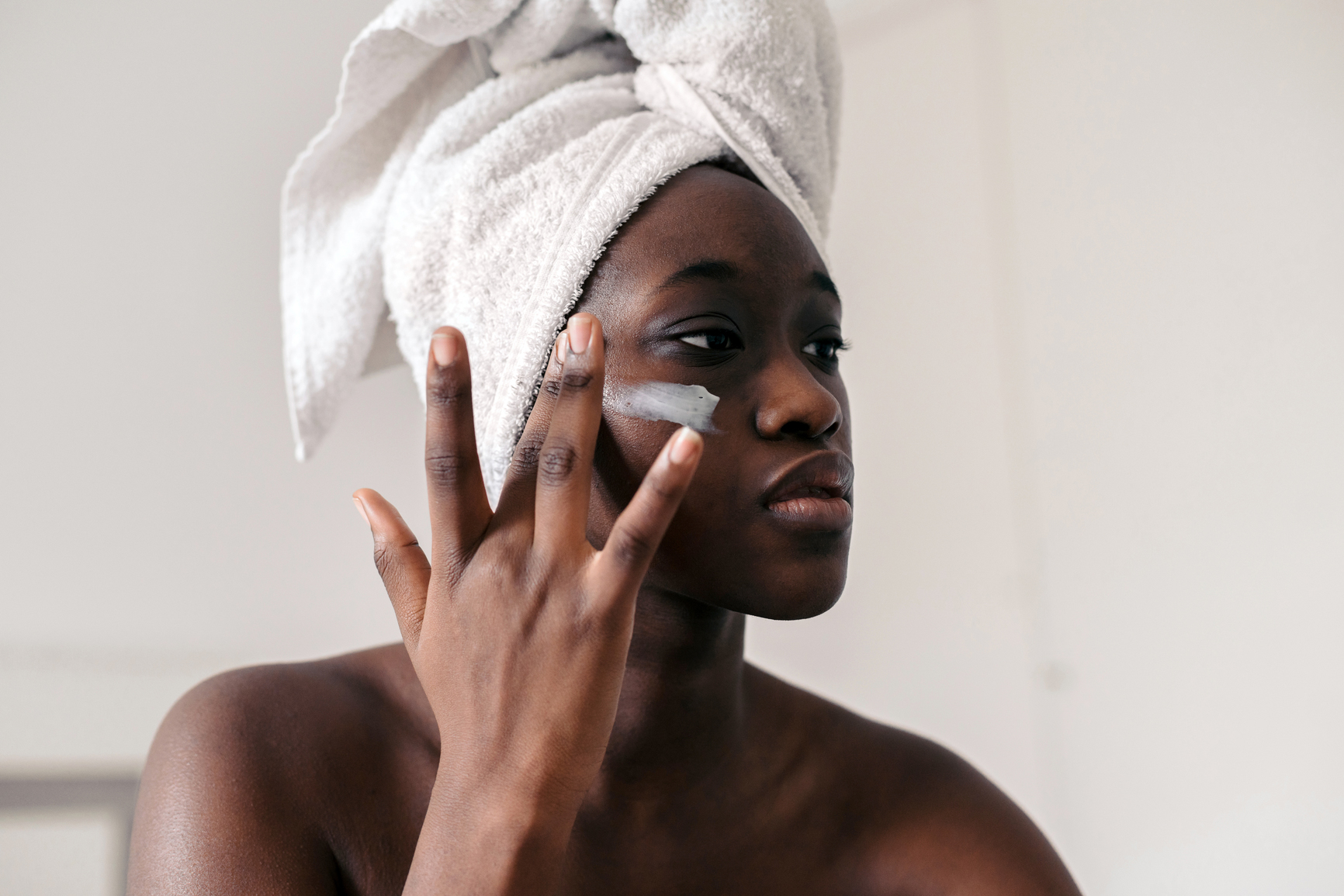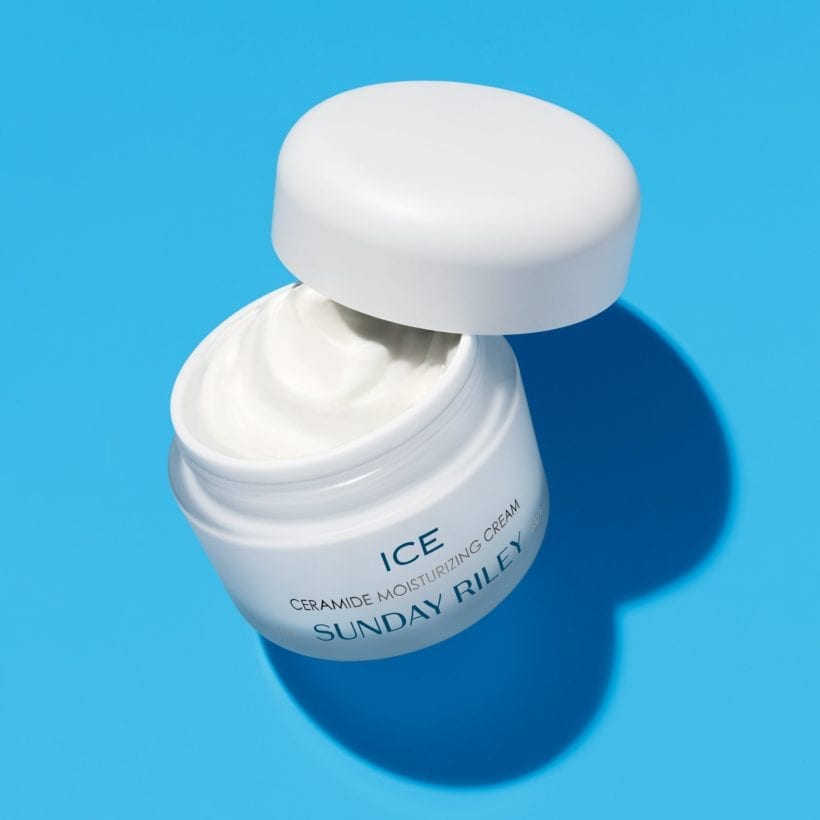It’s winter, and if you’re like most people, you’re probably noticing that your skin is becoming a little less dewy looking and a bit drier, cracked, and potentially even irritated. The good news: This is perfectly normal. As the seasons change from summer to fall and fall to winter, there is simply less moisture in the air, meaning water evaporates much quicker from our skin, notes Blair Murphy-Rose, M.D., a cosmetic and medical dermatologist at the Laser & Skin Surgery Center of New York and Clinical Instructor of Dermatology at Weill Cornell Medical College. And this is true of all skin types — even normal and oily skin.
“Seasonally, dry and cracked skin is the result of a decrease in the amount of lipids — aka fats — and in the water-binding capacity of the outermost layer of skin,” says Dr. Murphy-Rose. However, she points out that dry skin can occur for a myriad of reasons, including genetic predispositions, aging, and certain underlying medical conditions, and as a result of environmental factors like low humidity states and excessive washing or harsh skin products.

Luckily, dry skin is usually nothing to worry about — and can be easily remedied. “Dry skin will often improve with moisturization and hydration, and even dry-skin-causing conditions, like eczema, are typically improved with topical medications like corticosteroids that reduce inflammation,” Dr. Murphy-Rose explains. “Rarely, a nutritional deficiency can cause the appearance of dry and cracked skin, and this would generally be remedied by reversing the deficiency, for example with a specific dietary supplement.”
Meet the Experts
Blair Murphy-Rose, M.D. is a cosmetic and medical dermatologist at the Laser & Skin Surgery Center of New York and Clinical Instructor of Dermatology at Weill Cornell Medical College.
Tracy Evans M.D., M.P.H. is a dermatologist and Medical Director of Pacific Skin and Cosmetic Dermatology.
Here’s a closer look at some of the culprits that play a role in causing the skin to be dry and cracked — and what you can do in each circumstance.
Winter Weather
One of the biggest causes of dry skin is naturally a change in the seasons, with winter being the most common culprit due to the fact that colder air has a lower capacity to carry moisture. “The air is drier and our skin is more prone to trans-epidermal water losses,” explains Dr. Murphy-Rose. It usually only takes a little moisture and hydration to restore levels to normal, and this can be done at home with an emollient or nourishing lotion. For severely dry skin or dry skin leading to cracks and broken skin, however, Dr. Murphy-Rose suggests seeing a doctor for advice.
Skin Conditions Such as Eczema
Severe dry skin can often progress to a condition called asteatotic eczema according to Dr. Murphy-Rose — something dermatologists often refer to as “winter’s itch” for its propensity to occur at this time of year. “Asteatotic eczema is frequently itchy but can be relieved with lifestyle modifications like exercising gentle skincare, avoiding harsh soaps, moisturizing liberally especially right after bathing, and avoiding hot showers,” she says. “Eczema can also look a lot like ‘dry and cracked skin’ and can often improve with topical medications like forms of cortisone that reduce inflammation.” If for any reason, your eczema is not easing up with these remedies, it’s a good idea to seek the opinion of a board-certified dermatologist.

Nutritional Deficiency
Although rare, being deficient in a certain nutrient, like zinc, can cause the appearance of dry and cracked skin. “This is often remedied by reversing the underlying deficiency, for example, by taking a specific dietary supplement,” says Dr. Murphy-Rose. “There are genetic predispositions that can lead to certain nutritional deficiencies, but for those without such a predisposition or underlying condition, maintaining a well-balanced diet is usually sufficient for prevention.” If you think a nutritional deficiency is responsible for your dry skin, she recommends seeking out the opinion of your primary care doctor or your dermatologist.
Genetic Causes
Certain inherited skin disorders, such as keratoderma or psoriasis, cause the skin to become more dry and cracked, notes Tracy Evans M.D., M.P.H., Dermatologist and Medical Director of Pacific Skin and Cosmetic Dermatology. If you suspect that your dry skin has a genetic component, she recommends making an appointment with your dermatologist, as there are specific therapies that can be prescribed to help this condition.
Irritants That Come in Contact with the Skin
Especially amidst a global pandemic, we’re using more and more dehydrating ingredients on our skin, like alcohol-based hand sanitizers and soap, which can both dry the skin tremendously, warns Dr. Evans. “They can even cause irritant contact dermatitis of the skin which causes more redness and cracks in the skin,” she says. “Using hand creams with hyaluronic acid and ceramide moisturizers can make a big difference to keep the skin hydrated.” At night, she recommends wearing white cotton gloves with a layer of thick moisturizer to hydrate dry hands.
We only recommend products we have independently researched, tested, and loved. If you purchase a product found through our links, Sunday Edit may earn an affiliate commission.










